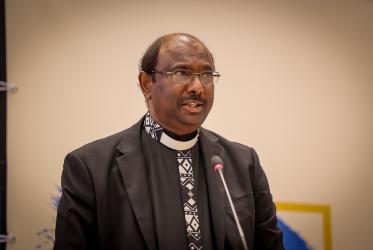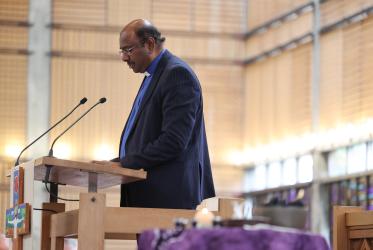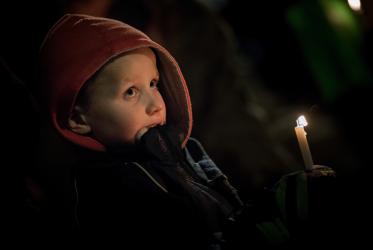by Kristine Greenaway
Women of African descent have been a force within the global ecumenical movement for decades but are still not well recognized for their contributions. It is time for that to change, say the organizers of a network of pan African theologians, laywomen and clergy within the World Council of Churches (WCC).
“We aim to gather and make visible the stories of pan African women that will nurture female leadership development now and in the future,” says WCC Central Committee member Angelique Walker-Smith. “These stories are too often neglected in ecumenical and church history.”
Walker-Smith serves as convenor of the Pan African Women’s Ecumenical Empowerment Network (PAWEEN) launched in November 2015 by the World Council of Churches. The network is intended to serve as a platform for academic study, spiritual reflection and action for women of African descent in all regions of the world.
During the meeting of WCC’s Central Committee this week in Trondheim, Norway, PAWEEN members will be watching closely to see how often pan African women are heard in plenary debates and how often they appear in leadership roles.
The network includes the current WCC moderator, Agnes Abuom, among its members. Abuom, a Kenyan development consultant and theologian, is the first woman and the first African, appointed to the position. Abuom’s visibility is a definite asset for meeting PAWEEN’s objective of increasing awareness of the contributions of pan African women to the global ecumenical movement.
Mary Anne Plaatjies van Huffel, WCC president for Africa, believes PAWEEN will serve WCC’s work of encouraging the training and appointment of ecumenical leaders who reflect the many faces of the global church community.
Plaatjies van Huffel, who is a theology professor at South Africa’s Stellenbosch University says: “I look forward to a future where a wider range of perspectives and responses are heard and included in WCC action plans; a time when actions match words and where the words of all, regardless of gender, race or origins, are treated equally seriously.”
PAWEEN’s draft framework notes that the stories of past and present pan African women ecumenical leaders are a source of inspiration for renewed models of female Christian leadership in these times of change when churches in the Global South are increasing and many in the North are in decline. The resulting shift in the religious landscape of Christianity underscores the growing need for trained and experienced pan African women ecumenists, according to the core group of PAWEEN members that drafted the framework.
PAWEEN’s plans for academic contributions to global ecumenism and female leadership formation in the coming years include conferences and seminars in Africa, Europe and North America as well as publications in connection with the Ecumenical Institute in Bossey and the World YWCA.
A recent consultation in Washington, D.C., on poverty and hunger is the first high-profile social justice event connected to PAWEEEN. “Pan African Women of Faith: Lifting Our Voices and Votes to End Hunger and Poverty” was held earlier in June under the auspices of Bread for the World, the World Council of Churches and Howard University’s Office of the Dean of the Chapel. Walker-Smith was the key organizer.
“WCC’s Pilgrimage of Justice and Peace presents a kairos moment for deepening the churches’ understanding of the contributions of pan African women to the history of the churches and the ecumenical movement,” Walker-Smith believes. “During the Washington consultation’s day of a pan African spiritual pilgrimage of justice and peace, some of these women were remembered in the prayers and litanies at places like the African Union and historic African American church and St. Teresa of Avila Catholic Church.”





